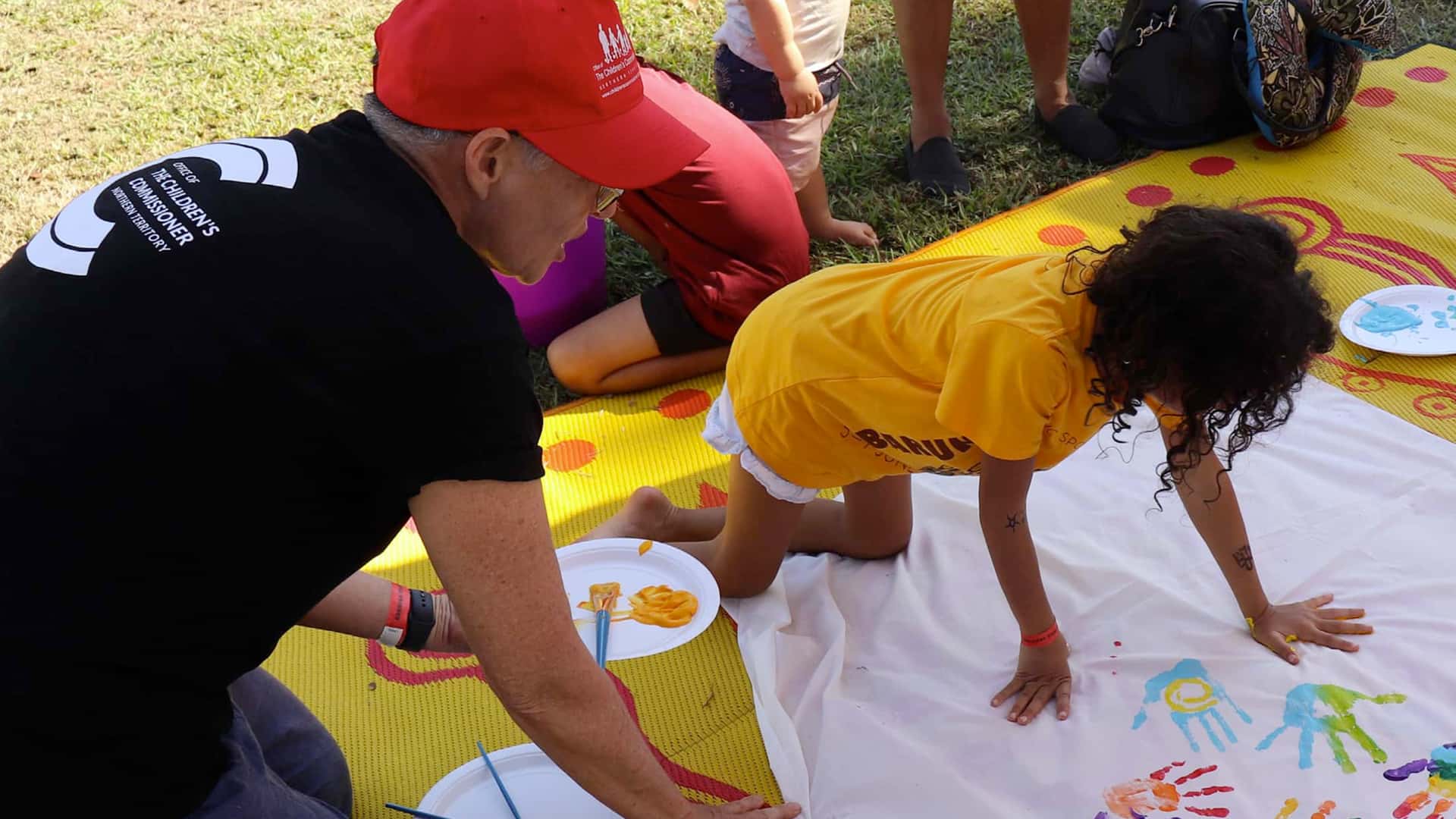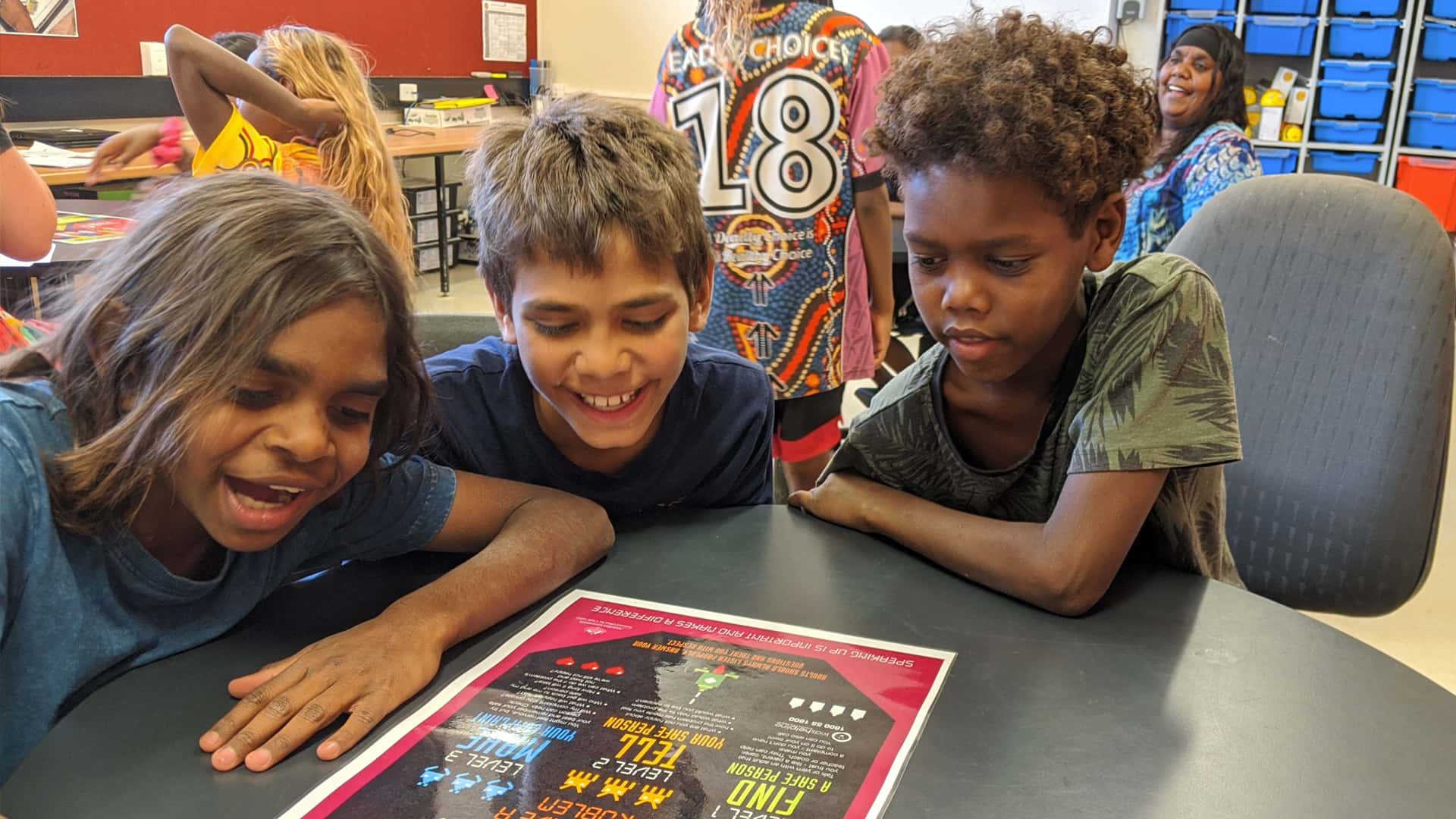Child Safe Organisations
In 2017 the Australian Government asked the National Children’s Commissioner to lead the development of National Principles for Child Safe Organisations.
The Australian Government also commissioned the Australian Human Rights Commission to develop practical tools to help organisations implement the National Principles.
The National Principles were developed under the guidance of Community Services Ministers across Commonwealth, state and territory governments under the National Framework for Protecting Australia’s Children 2009-2020. The Principles respond to recommendations made by the Royal Commission into Institutional Responses to Child Sexual Abuse (2017).
Our Commitment
The Office of the Children’s Commissioner (the OCC) is committed to the safety of children and young people that engage with our office.
Our Child Safe Policy applies to the Commissioner, Assistant Commissioner, staff, contractors and any other people representing the OCC.
Everyone who works at the Office of the Children’s Commissioner will do everything they can to create a safe environment when working children and young people, and to make sure they are cared for and protected. This might include having to tell someone else about any serious worries we have for a child’s safety.
The OCC will continually look at ways we can prevent harm to children occurring through the work we do and that any risks to children and young people are identified early and responded to in the right way.
The OCC makes sure that when we are finding and training workers, we will make sure that they have the right experience, knowledge and attitude to work with vulnerable children and young people and that they are committed to promoting children’s rights.


All children, regardless of their gender, race, religious beliefs, age, disability, sexual orientation, or family or social background, have equal rights to safety and wellbeing.
The OCC is committed to the cultural safety of Aboriginal and Torres Strait Islander children, the cultural safety of children from culturally and/or linguistically diverse backgrounds and to providing a safe environment for children living with disability. You can read our ‘Aboriginal Cultural Security Statement of Commitment’ for more information about how we will work in a culturally responsive way.
The OCC will continue to develop specific policies and procedures that support anyone working with us to meet our child safe commitments. These policies and procedures will be regularly reviewed and updated.
The OCC recognises the right of children and young people to have a say on issues that affect them, and values children’s and young people’s voices and perspectives on these issues. The OCC is committed to listening to all children across the NT and to promote their experiences and ideas on how to fix issues they are experiences. We will continue to make sure that children and young people have opportunities to tell the OCC how we can improve the way we work and to make a complaint if they are not happy with how we have worked with them.
The National Principles aim to provide a nationally consistent approach to creating organisational cultures that foster child safety and wellbeing across all sectors in Australia. This will help to keep children and young people safe and reduce future harm in organisational settings.
The National Principles reflect the ten child safe standards recommended by the Royal Commission, with a broader scope that goes beyond child sexual abuse to cover other forms of harm to children and young people. For more information on the development and implementation of the principles go to: https://childsafe.humanrights.gov.au/national-principles/about-national-principles
At present, the National Principles are not mandatory. However, organisations that implement them will be demonstrating their leadership and commitment to child safety and wellbeing. These organisations will become ‘organisations of choice’, because children and young people, families and communities will feel confident that they provide safe environments where children’s rights, needs and interests are met.
Organisations that engage with children and young people must continue to meet existing child safe requirements in their state or territory. This includes background check schemes for those seeking to work or volunteer with children. Links to Northern Territory child safe requirements and other resources are available here.
Aboriginal Cultural Security
Statement of Commitment
The Office of the Children’s Commissioner (OCC) is based on the land of the Larrakia people, the Traditional Owners of the Darwin region. The OCC pays respect to Larrakia elders past and present, as well as emerging Larrakia leaders, and will acknowledge the Traditional Owners of the lands we are working on in all OCC work.
The OCC is committed to the cultural safety and wellbeing of Aboriginal and Torres Strait Islander children in the Northern Territory.
This statement applies to the Commissioner, Assistant Commissioner, staff, contractors and any other people representing the OCC, and outlines our commitment to always work in ways that are respectful and cognisant of Aboriginal customs, knowledge, values and expectations.
We acknowledge that the social, emotional and cultural wellbeing of Aboriginal children* and their families have been detrimentally impacted by colonisation and government policies that have resulted in sustained disconnection from family, community and culture, and over-representation in both the care & protection and youth justice systems.
The OCC is committed to work in ways that are empowering and enact Aboriginal self-determination at individual and community levels. We respect that Aboriginal people are the experts of their own lives. OCC is committed to continuing to grow and develop our Aboriginal workforce so that the office more closely resembles the community we serve.
The OCC recognises and centres Aboriginal culture in our work, as a protective and critical factor for the healthy development of Aboriginal children’s wellbeing. It is a right of all children to go on country, participate in ceremony and uphold their inherited customs and traditions regardless of if they are living with their families or not. The OCC will always support Aboriginal children’s rights as set out in the UN Convention on the Rights of the Child and the UN Declaration on the Rights of Indigenous Peoples.
We take seriously our responsibility to elevate the voices and perspectives of Aboriginal children in decisions which affect them, their voices are critical to achieving innovative reforms. We will continue to engage with Aboriginal communities and organisations to better understand what is needed to safeguard the best interests of their children, and to support Aboriginal leadership in delivery of services and supports. All OCC staff will engage in ongoing professional development to ensure they are culturally responsive across all areas of their work.
This statement underpins our holistic and multi-faceted approach to ensure Aboriginal children in the Northern Territory are proud in culture, strong in identity and are ultimately safe and reaching their fullest potential.
* This statement uses the terms ‘child’ and ‘children’ in accordance with the legislative definition of vulnerable child as per the Children’s Commissioner Act 2013. However, the OCC acknowledges that there are Aboriginal young people that, in accordance with Aboriginal customary lore, are adults.